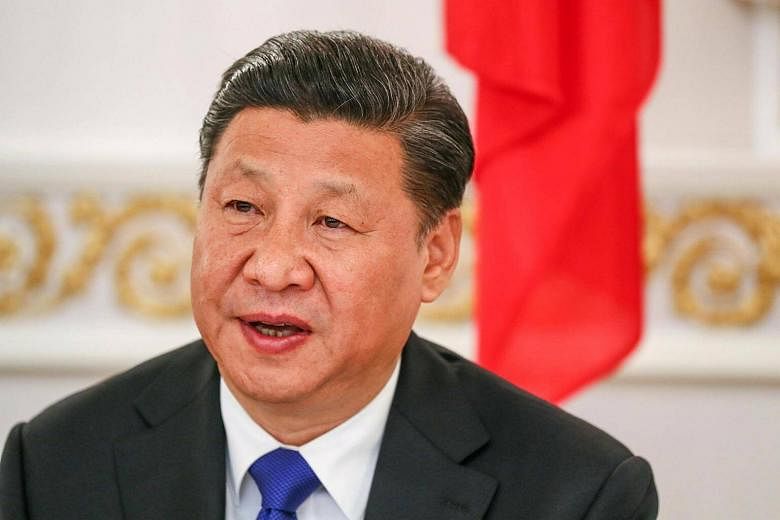North Korea's firing of a missile on the eve of a summit between leaders of the United States and China has added ammunition to Washington's efforts to pressure Beijing to rein in Pyongyang.
However, it is unlikely to cause Chinese President Xi Jinping to change his stance on North Korea at his meetings with his US counterpart Donald Trump today and tomorrow at the latter's Mar-a- Lago resort in Florida.
And while North Korea will feature highly in the two leaders' summit, for the Chinese leader, there are other more important issues. These include setting the tone for the next four years of Sino-US ties under the Trump administration, heading off a potential trade war and ensuring that the US will not create trouble in the Taiwan Strait and the East and South China seas.
As for yesterday's missile launch by North Korea, it will have little bearing on the leaders' meetings as "both sides have already got their own positions on the issue and will act accordingly", said Professor Jin Canrong, director of the Centre for China's International Strategic Studies at Renmin University.
In the run-up to the summit, Washington has put pressure on Beijing to rein in Pyongyang's nuclear and missile programmes, which have continued apace despite increasingly heavy sanctions imposed by the UN Security Council (UNSC).
In an interview with the Financial Times published on Sunday, Mr Trump said the US will deal with Pyongyang alone if China would not cooperate. China has always maintained that as a close neighbour of North Korea, it should be included in any process to resolve the Korean peninsula nuclear issue.
Mr Xi is expected at the summit to agree to more sanctions under the UNSC, but also urge the US and North Korea to go back to the negotiation table. Beijing has proposed that Pyongyang suspend its nuclear and missile programmes in exchange for a halt in large-scale military exercises by the US and South Korea. The two sides could then negotiate a denuclearisation process as well as a peace agreement.
Beyond North Korea, Mr Xi would want to use this summit to build a good foundation for Sino-US ties and reach consensus on how to deal with problems better, said Professor Jia Qingguo, dean of the School for International Studies at Peking University.
This would include coming up with a mechanism for communication to take the place of the Strategic and Economic Dialogue of the past which both sides had not been too satisfied with, he added.
Mr Xi would also want to head off a potential trade war, analysts said.
Another issue that Mr Xi is expected to bring up is Taiwan, seen by China as a breakaway province to be reunified with China one day.
Soon after his election, Mr Trump broke with tradition and spoke with Taiwanese President Tsai Ing-wen. He also questioned his country's "one China" policy, a cornerstone of Sino-US ties.
Although he has backpedalled on his questioning of the "one China" policy, Beijing remains anxious about his intentions. This is seen in how Premier Li Keqiang reiterated that Washington's adherence to its "one China" policy is the political foundation of bilateral ties that could not be undermined, at his annual press conference last month.
China will want to make sure that the US will not make trouble on the Taiwan issue, said Prof Jin. The summit would be considered a success if Mr Xi could achieve this as well as establish a partnership with the US.


